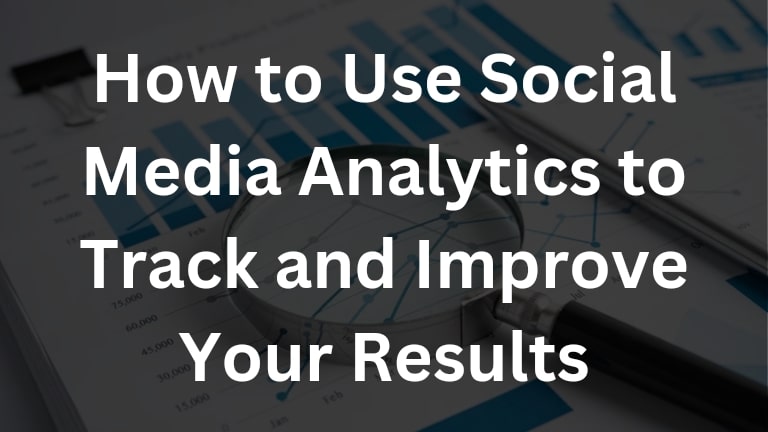In today’s digital age, social media is a powerful tool for businesses to connect with their audience, build brand awareness, and drive growth. However, simply having a presence on social platforms isn’t enough. To truly make an impact, businesses need to understand the performance of their content and campaigns. That’s where social media analytics come in. Tracking these metrics allows businesses to make data-driven decisions, optimize strategies, and achieve measurable success.
1. Why Social Media Analytics Matter
Social media analytics help you measure the effectiveness of your campaigns and the performance of your content. These insights reveal which strategies are working and which need refinement. Without tracking your results, you’re essentially working in the dark, relying on guesswork rather than informed decisions.
By using analytics, you can:
• Identify key trends: Understand what types of content resonate with your audience.
• Measure engagement: Track likes, comments, shares, and other forms of engagement.
• Monitor follower growth: Keep an eye on how your audience is expanding.
• Assess ROI: Determine whether your social media efforts are translating into real business results.
2. Key Metrics to Track
When diving into social media analytics, it’s important to focus on the right metrics for your business goals. Here are some of the most valuable metrics to track:
• Engagement Rate: This shows how much your audience interacts with your content. High engagement means your content is resonating.
• Reach and Impressions: Reach indicates how many unique users see your content, while impressions show the total number of times your content is displayed.
• Click-Through Rate (CTR): For businesses focused on driving traffic, CTR is crucial. It measures the percentage of users who click on your links.
• Conversion Rate: If your goal is to convert visitors into customers or leads, the conversion rate tells you how well your content is achieving this.
3. Best Tools for Social Media Analytics
Many platforms offer built-in analytics tools to help businesses track performance. Here are a few to consider:
• Facebook Insights: Provides detailed metrics on post performance, audience demographics, and engagement.
• Instagram Insights: Tracks follower growth, engagement, and the reach of posts and stories.
• Twitter Analytics: Offers data on tweet impressions, engagement, and audience demographics.
• LinkedIn Analytics: Great for tracking professional engagement and the performance of B2B content.
• Google Analytics: Although not a social media tool, it can track traffic from social media to your website and assess how social users behave on your site.
4. How to Use Analytics to Improve Your Strategy
The key to using social media analytics is not just collecting data but interpreting and acting on it. Here’s how you can improve your strategy:
• Set Clear Goals: Are you trying to increase brand awareness, drive traffic to your website, or boost sales? Knowing your goals helps you track the right metrics.
• Analyze Performance Over Time: Don’t just look at a single post’s performance. Analyze trends over weeks or months to understand how your strategy is evolving.
• A/B Testing: Experiment with different content formats, posting times, and hashtags to see what drives better results.
• Adjust Content Strategy: If certain types of posts (e.g., videos or infographics) receive higher engagement, shift your strategy to create more of that content.
5. Maximizing Results: The Next Steps
Once you’ve gathered data, the real work begins. Use your insights to fine-tune your content strategy, experiment with new approaches, and continuously optimize your campaigns. Regularly reviewing analytics will help you stay aligned with your business goals and ensure that your social media presence is delivering value.
By leveraging social media analytics, you’ll gain a clear understanding of your performance, make informed decisions, and continuously improve your results. Analytics transform social media from a guessing game into a powerful tool for business growth.
